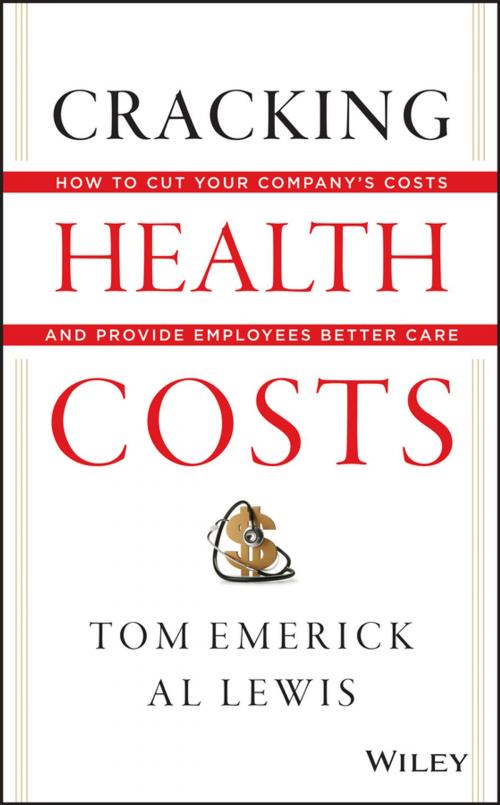Cracking Health Costs
How to Cut Your Company's Health Costs and Provide Employees Better Care
Business & Finance, Industries & Professions, Insurance| Author: | Tom Emerick, Al Lewis | ISBN: | 9781118710913 |
| Publisher: | Wiley | Publication: | June 7, 2013 |
| Imprint: | Wiley | Language: | English |
| Author: | Tom Emerick, Al Lewis |
| ISBN: | 9781118710913 |
| Publisher: | Wiley |
| Publication: | June 7, 2013 |
| Imprint: | Wiley |
| Language: | English |
Cracking Health Costs reveals the best ways for companies and small businesses to fight back, right now, against rising health care costs. This book proposes multiple, practical steps that you can take to control costs and increase the effectiveness of the health benefit.
The book is all about rolling back health care costs to save companies and employees money. Working hand-in-hand with their employees, businesses need to ensure that, whenever feasible, employees with the most expensive diagnoses get optimal treatment at hospitals not practicing “volume-driven” medicine for higher profits. Less than 10% of employees incur 80% of costs. About 20% of patients have been completely misdiagnosed, while many others are simply the victims of surgeons who are either practicing bad medicine or overtreating for profit.
For example, some companies, such as Walmart and Lowe’s, are turning to the “Centers of Excellence” approach author Tom Emerick helped to pioneer while running benefits for Walmart. By determining which hospitals are adopting the highest standards of care, benefits managers can reduce the number of unnecessary high-cost surgeries and improve employees’ overall health. The solution-based approach offered by the book is unique, because it can be implemented by businesses today.
Cracking Health Costs reveals the best ways for companies and small businesses to fight back, right now, against rising health care costs. This book proposes multiple, practical steps that you can take to control costs and increase the effectiveness of the health benefit.
The book is all about rolling back health care costs to save companies and employees money. Working hand-in-hand with their employees, businesses need to ensure that, whenever feasible, employees with the most expensive diagnoses get optimal treatment at hospitals not practicing “volume-driven” medicine for higher profits. Less than 10% of employees incur 80% of costs. About 20% of patients have been completely misdiagnosed, while many others are simply the victims of surgeons who are either practicing bad medicine or overtreating for profit.
For example, some companies, such as Walmart and Lowe’s, are turning to the “Centers of Excellence” approach author Tom Emerick helped to pioneer while running benefits for Walmart. By determining which hospitals are adopting the highest standards of care, benefits managers can reduce the number of unnecessary high-cost surgeries and improve employees’ overall health. The solution-based approach offered by the book is unique, because it can be implemented by businesses today.















